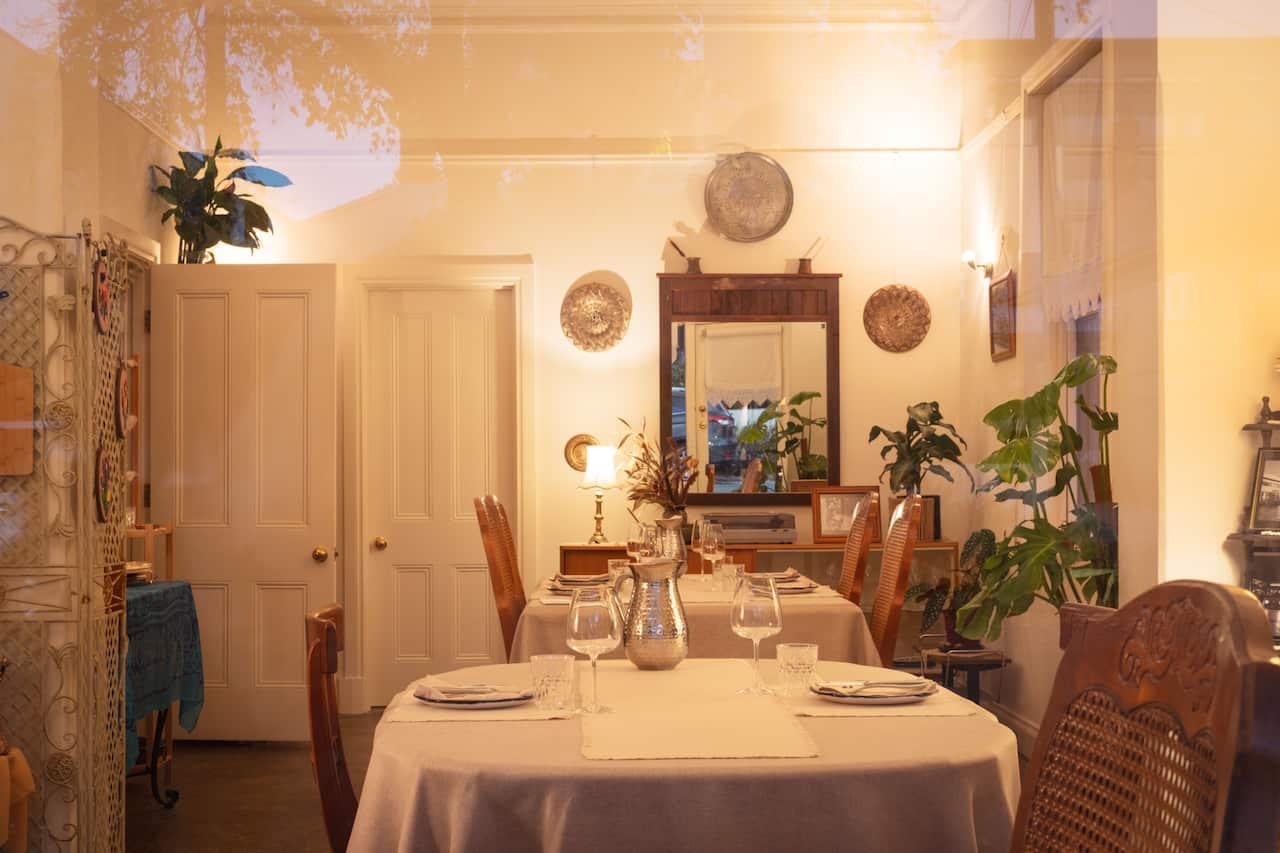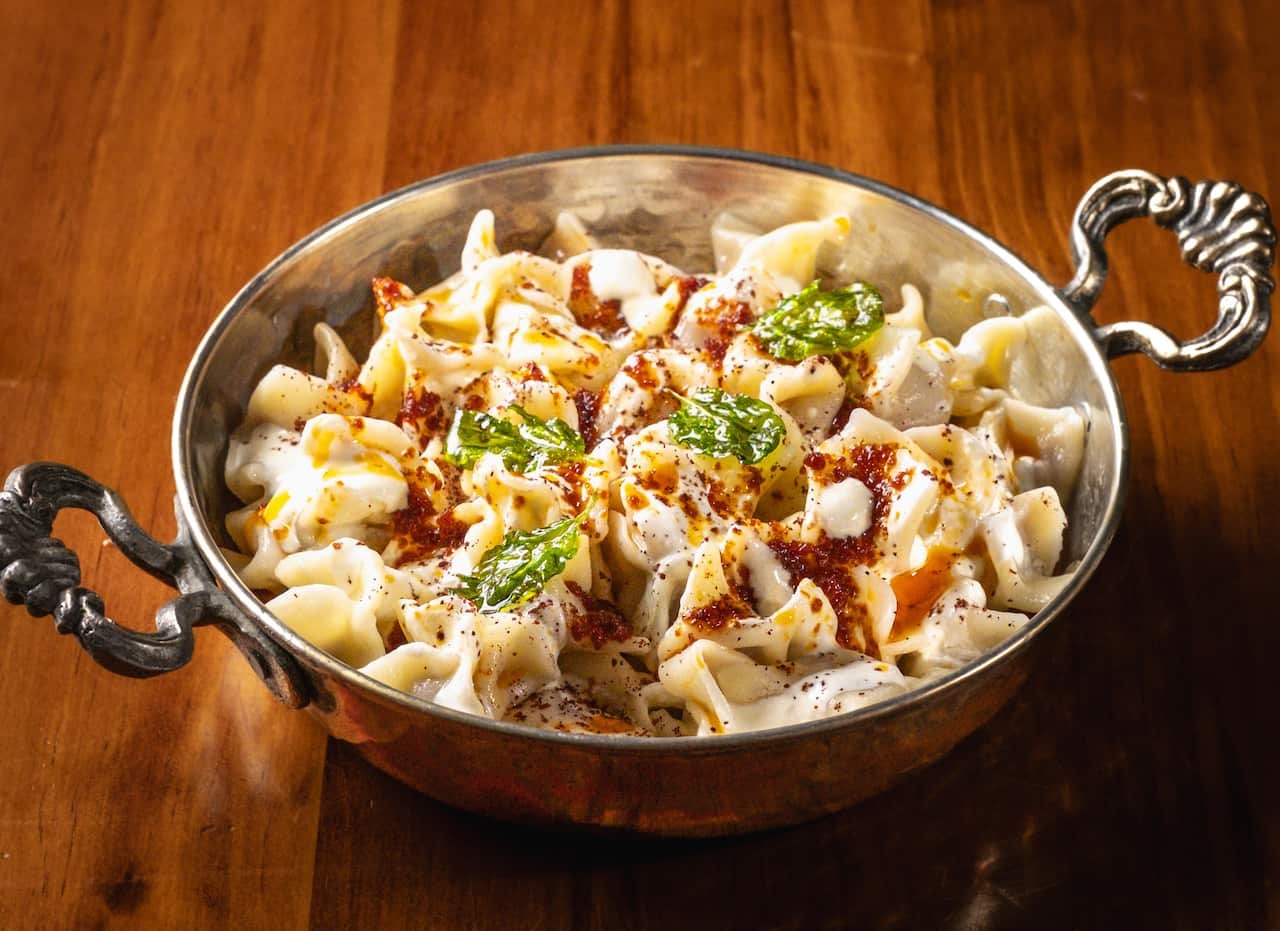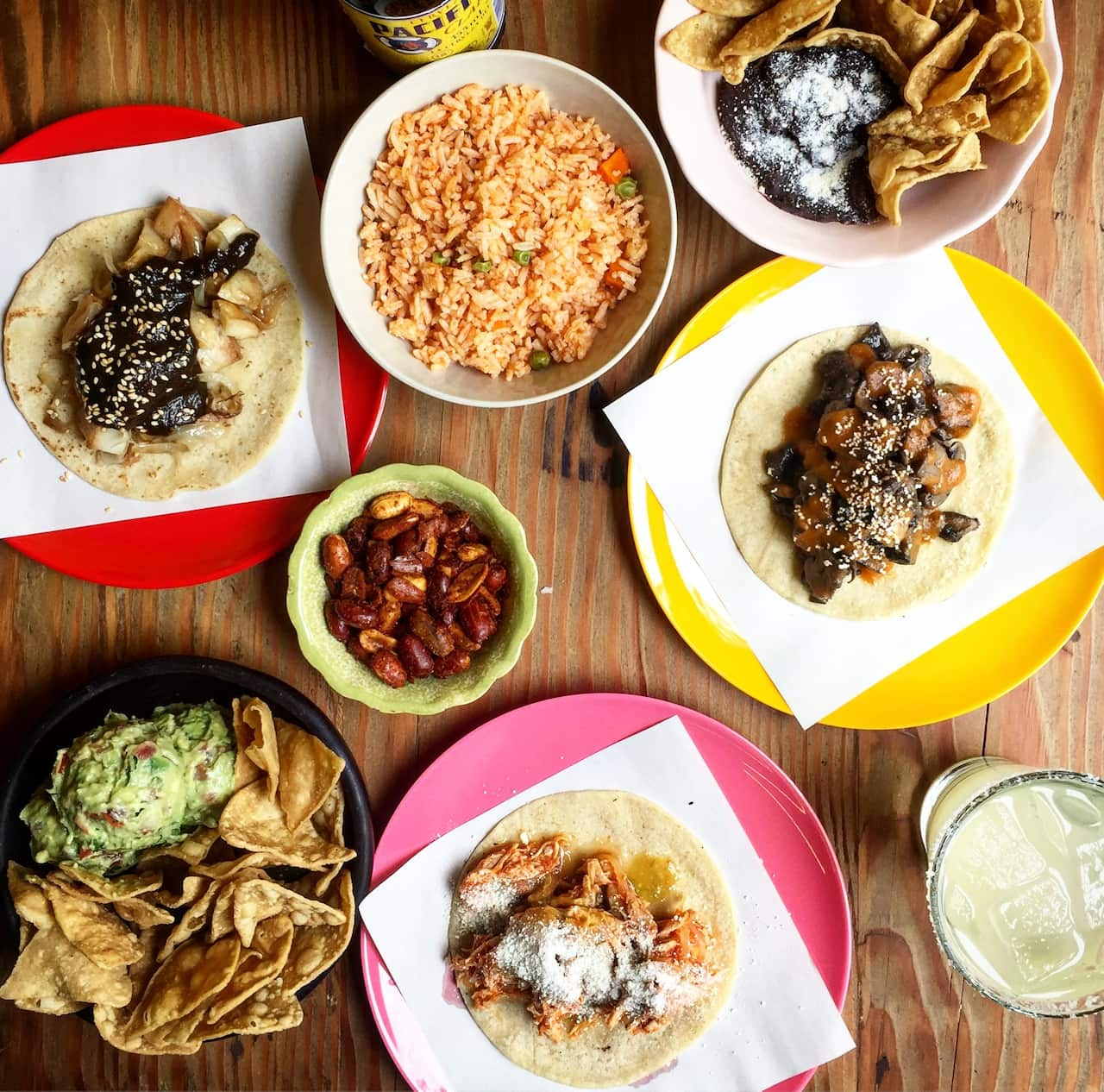In Adelaide, some of the most profound dining experiences aren’t found behind grand doors or shiny façades, they’re tucked into backstreets, basements, and forests where fewer than 20 seats hold entire worlds. These tiny, migrant-inspired kitchens are more than restaurants. They’re memory rooms and living stories, the places where a chef’s personal history sits at the table with you.
From the ten-seat Turkish meyhane of Mini Lokanta, to the woodland reverie of Villetta Porcini, the Maltese soul of Staguni, and the hum of La Popular Taqueria, these dining rooms show how migration shapes flavour, hospitality and identity, all within the kind of intimacy where you can almost feel the cook laugh and whisk between courses.
Villetta Porcini: A time capsule of Italian memory
Step through the doorway of Villetta Porcini and it feels like stepping directly into chef André Ursini’s family album. Soft light glows against shelves lined with heirlooms: his grandparents’ suitcase embedded into the wall, his children’s first shoes, a copper pan from his early days at André’s Cucina. Everything here is deliberate and everything means something.
“It’s turned into a time capsule for my family and memories,” he says.

Born in Adelaide to a post-war migrant family from Trentino in Italy’s Dolomites, André cooks as a first-generation Australian exploring where he comes from but firmly grounded in where he is. “I celebrate my heritage, but I don’t claim to be Italian,” he says. “I’m an Australian who cooks from that lineage.”
The intimacy of Villetta Porcini is no accident. There’s no website, no menu and no public booking platform. Guests are invited personally, often staying for hours in a dining room that feels more like a family home than a restaurant. “This is an extension of my home,” he says. “When I cook here, I’m part of the table.”
At the centre sits the Mycelium Table, a private chef’s table named after the underground fungal network that connects whole forest ecosystems. “It’s about connection,” André says. “The same network that links everything in nature.”
He’s working toward the day the entire table is grown onsite, “a true harvest table with minimal intervention.” What he wants diners to leave with is a feeling, not a flavour note.
“One guest told me, ‘Mate, we woke up this morning thinking it was a dream.’ That’s exactly how I want it to feel.”
Mini Lokanta: A Turkish home table in North Adelaide
If Villetta Porcini is a time capsule, Mini Lokanta is a living room wrapped in Turkish warmth. Hidden in a heritage North Adelaide home, it’s run by Gökçe and Enver Tuğrul, engineers who built a space that feels like visiting a generous auntie who insists you stay for one more plate.

Their goal wasn't to open a restaurant. It was to build a space where Turkish culture could be shared the way it’s meant to be: slowly, generously, and with the kind of storytelling that makes strangers feel like cousins.
The room is lined with photos of Istanbul and Izmir, copper pieces from grandparents, and objects, like an old molasses vessel, that spark questions. Mezze arrives in a gentle rhythm: carrot yoghurt, zucchini fritters, Ezme, handmade pastas, pastries. “It takes three hours to serve all the food,” they say. “People usually like the pace: not too slow, not too fast.”
Two dishes anchor the experience. Manti, the tiny dumplings Gökçe learned to make at six with her mum, “comfort, home… everyone helps”, and Hünkar Beğendi, a smoky eggplant béchamel crowned with slow-cooked beef. Its story is French béchamel meets Ottoman improvisation and told at the table before the first bite.

It’s BYO, one price, no upsell. “Just come and enjoy it,” they say. But there’s a condition: participation. “If people come just to eat and go, it’s not fun for us. What’s the purpose?” The best nights end with dessert, Turkish music, and the hosts joining guests for a drink.
Their migration story threads gently between courses. Adelaide first attracted them for practical reasons like jobs and visas but became home for its calm. “Less stress… time for everything,” Enver says. Gökçe lights up at Australia’s diversity, discovering Vietnamese, Indian and Chinese cuisines, then folding that curiosity into her Turkish cooking.
Demand has exploded, they have a thousand people on the waitlist, yet inside, the pace is human. Somewhere between the dumplings and the Sultan’s delight, a temporary community forms.
“The idea,” they say, “is that you come as a guest and leave feeling like you’ve been at a friend’s table.”
Staguni: A Maltese love letter in the Barossa
Drive into the Barossa and you’ll find Staguni, a converted classroom welcoming diners with calming green walls and neutral tones, where the photos are personal and chef Clare Falzon greets guests herself. At 33, she describes the space as “the first spot that’s truly mine.”
It had to feel communal, generous… very Maltese.Clare Falzon
Staguni means “seasons” in Maltese, and the restaurant lives by that rhythm, slow, local, unpretentious. But its heart is deeply cultural. “In Maltese culture, you always check in: ‘Are you full? Do you need more?’ Hospitality isn’t a performance. It’s instinct.”
Maltese cuisine, she explains, is complex to define. “It’s poor-people food. From-the-land food. The island’s basically a rock. You make do, and you make it good.” It’s an island shaped by scarcity and influenced by everyone who passed through, Arab spices, British comforts, French touches, abundant seafood, tomatoes in oil, capers on sunburnt cliffs.
Stream free On Demand

Shane Delia's Malta
series • Travel
G
series • Travel
G
Clare threads her heritage through the menu in subtle ways. A dish like Ħobż biż-żejt, “bread with oil” becomes a bright, salty opener celebrating summer staples. She’ll write her Maltese dish in Maltese first, then English: a small reclaiming of identity.
“Most people don’t know Maltese food,” she says. “So when someone tells me a dish tastes like their childhood beach lunches… that’s everything.”

Staguni is intimate, 30 seats max, with a one-page wine list and a single weekly dinner service. “People told me it wouldn’t work,” Clare shrugs. “But if I tried to make something for everyone, I wouldn’t be me.”
Staguni is connection and storytelling over spectacle, a dining room where heritage is cooked, not curated.
La Popular Taqueria: Mexico, underground
Tucked away in Port Adelaide, La Popular Taqueria is a nine-table room where Latin music and the scent of fresh tortillas wrap around you like a warm night in Mexico City.
Owner-chef Daniella Guevara Muñoz grew up in Mexico City and later worked on the Yucatán Peninsula. She laughs when people call her taqueria “underground.” “We’re only underground because we couldn’t afford a city venue,” she says. “But Port Adelaide is beautiful, and the community has embraced us.”
Her migrant dish of origin is Cochinita pibil, the citrus-spiked Yucatecan pork she taught herself to make in Townsville in 2009, out of pure homesickness. “Now I do a superb Cochinita,” she says. It remains the emotional core of the menu.

Authenticity, for Daniella, is less about ingredients than experience. Substitutions are sometimes unavoidable, but technique, roasting, charring, fermenting, grinding, is non-negotiable.
“Authenticity is memory, emotion. It’s why some people cry at the table.” Many diners arrive expecting Tex-Mex and leave converts. “No nachos, no compromises,” she says. Early reviews were tough, but she held her line. Today, La Popular is considered one of Australia’s leaders in traditional Mexican cooking.
These intimate dining rooms in Adelaide may seat mere handfuls but they serve whole worlds, the very heartbeat of Australian cuisine, shaped by the people who’ve carried flavours across oceans. Step inside any one of them and you’ll taste not just a dish, but a life lived across continents - book the table, meet the chef, eat the story.
SBS Food is a 24/7 foodie channel for all Australians, with a focus on simple, authentic and everyday food inspiration from cultures everywhere. NSW stream only. Read more about SBS Food
Have a story or comment? Contact Us

